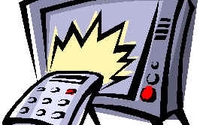 The smart home may be just around the corner but consumers are
somewhat leery of what they’ll have to do to make it work.
The smart home may be just around the corner but consumers are
somewhat leery of what they’ll have to do to make it work.
While most (68%) consumers think smart homes will be common as smartphones within 10 years, they don’t necessarily want
to personally do the work to make them possible, based on a new study.
The study comprised a survey of a representative sample of 2,500 U.S. adults by TNS for Intel.
Consumers want
things simple. This is how they see it:
- 86% -- Want to manage all smart home devices from one central portal
- 79% -- Want a single sign-on to a central portal where they can
manage their entire home
- 75% -- Suffer from password anxiety
However, most (71%) expect that at least one smart home device will be in every home by 2025 and 65% agree that
smart home technology will be a standard feature on real estate listings.
advertisement
advertisement
But the complexity of different systems has to be resolved before connected homes go mass scale.
The study is
yet another indicator that consumers want IoT technology to work and they aren’t necessarily interested in a do-it-yourself approach. Here are consumer views on smart device setup:
- 83% -- Want smart devices bundled with other services
- 74% -- Require smart devices to be as simple to set up as a cable TV
- 64% -- Would rather lease smart devices from a
trusted service provider than install themselves
It’s no secret that security is a top-of-mind challenge with the Internet of Things and the access to connected devices. This
study echoed many others, with 82% of consumers seeing security as a priority and wanting all devices to be secured through a single integrated package.
Here’s how consumers would want
to secure their smart home:
- 52% -- Fingerprints
- 42% -- Voice recognition
- 37% -- In-home smart sensors
- 10% -- Men who would employ a robotic guard
The wave of smart devices that make homes smart is here.
As a follow to its study, Intel even created a working model of a smart home to test what IoT technology can do.
And based on consumer viewpoints, the smart technology better be pretty smart.